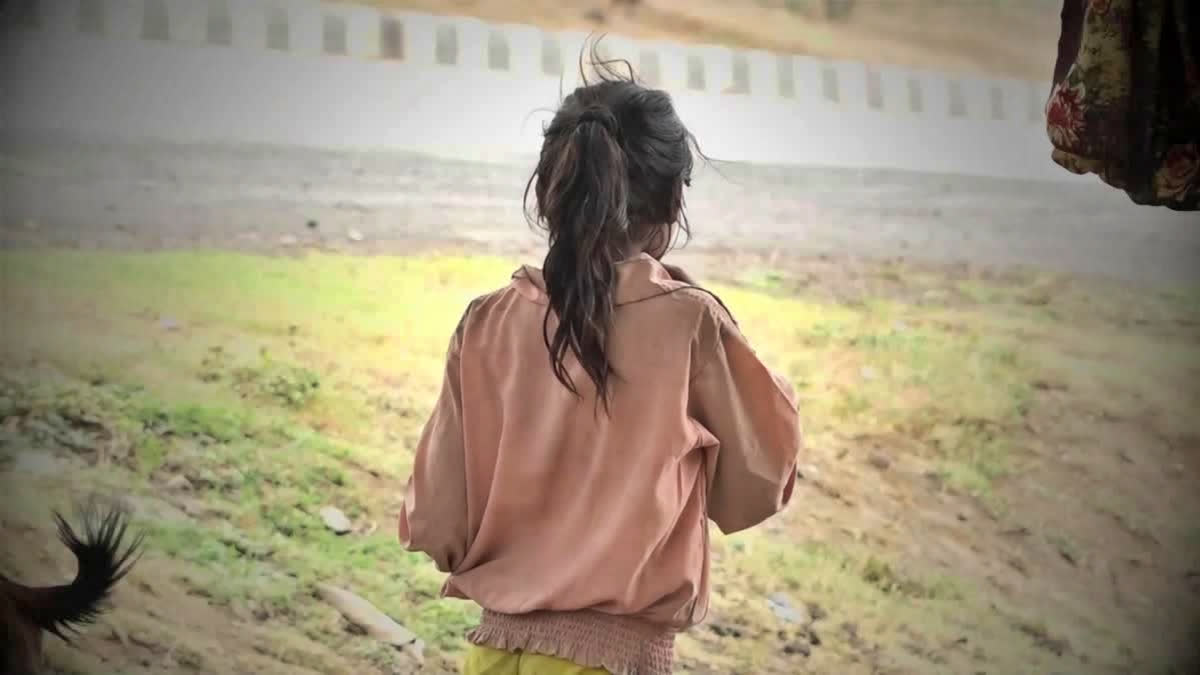Mandsaur (Madhya Pradesh): In the heartland of Madhya Pradesh, where the Ratlam-Mandsaur Highway winds its way through the landscape, a dark reality unfolds. Along this stretch, women from Banchhada tribe in Manankheda village, resigned to their fate, engage in the mucky trade of prostitution. Their presence is unmistakable, as they perch on charpoys adorned in vibrant attire, their faces adorned with garish makeup.
They sit there, hoping to attract clients—sometimes truck drivers, sometimes men in luxury cars—fully aware that their bodies have become commodities in this desolate corner of the world. In this community, neither the mother nor the girl child growing up in her womb would have any rights. The female children are wedded to the flesh trade even before they open their eyes in this world.
There are around 1,800 houses in Manankheda village. There are also camps for the Banchhada community. All the houses adjacent to the highway belong to them. Saroj (name changed), one of the members of the community, says, "Small girls of three, five and seven years old playing in the field do not even know the exact meaning of marriage. But they are aware of the year they will be 'wedded'."
17-year-old Devika (name changed) is pregnant but she cannot quit the trade as her mother remains ill and her brother is an alcoholic. Every evening, as other people in the village head to their homes, Devika gets dressed and sits outside to attract her 'customers'. "This is the time for the customers to arrive. It is what it is," she says.
Prostitution, a trade steeped in societal acceptance, thrives in the districts of Neemuch, Ratlam, and Mandsaur in Madhya Pradesh. For the Banchhada community, engaging in this family-based form of prostitution is their means of survival. To them, the birth of a girl is deemed auspicious, as it signifies another breadwinner for the family. Fathers and brothers assume the role of pimps, orchestrating the arrangements necessary for this business. In the family household, a dedicated room stands, reserved exclusively for this purpose.
Girls, barely reaching the age of 12 to 14, are thrust into this grim profession by their own parents. Almost all of them remain within the confines of their own village, where they bear children who are labelled as illegitimate. Prostitution has become their way of life, a tradition passed down through generations. Young girls are meticulously groomed to follow in the footsteps of their predecessors, as male family members reap the benefits of their labour.
The lineage of respected courtesans, once revered within the tribe, has now been reduced to a stark reality of disdain and disregard for women in the flesh trade. In a country obsessed with the notion of male children as desirable heirs, the birth of a girl child is ironically considered a stroke of fortune within this belt encompassing Ratlam, Mandsaur, and Neemuch.
The Banchhada community, with a population of approximately 23,000 spread across 75 villages in the three districts, comprises at least 65 percent women. A survey conducted in 2015 by the Madhya Pradesh Women Empowerment Department in 38 villages of Mandsaur revealed that out of a population of 3,435, there were 2,243 women and 1,192 men—a ratio of two women for every man. Similar findings emerged from a study conducted in 2012 in 24 Banchhada-dominated villages in Neemuch, where the number of women surpassed that of men, with 3,595 women and 2,770 men.
Although these families prefer girl children, their reasons are far from virtuous. Tragically, those who resist becoming a part of this culture find themselves trapped in the squalor of the profession against their will.
Also read: 5 Assam girls rescued from human traffickers in Delhi-NCR



